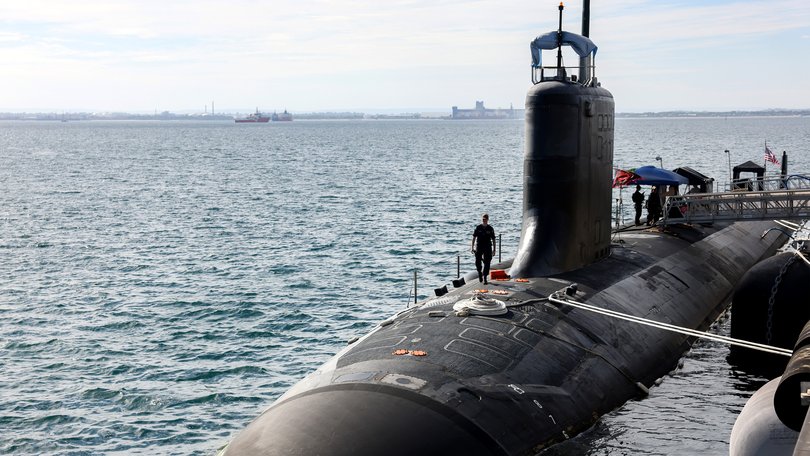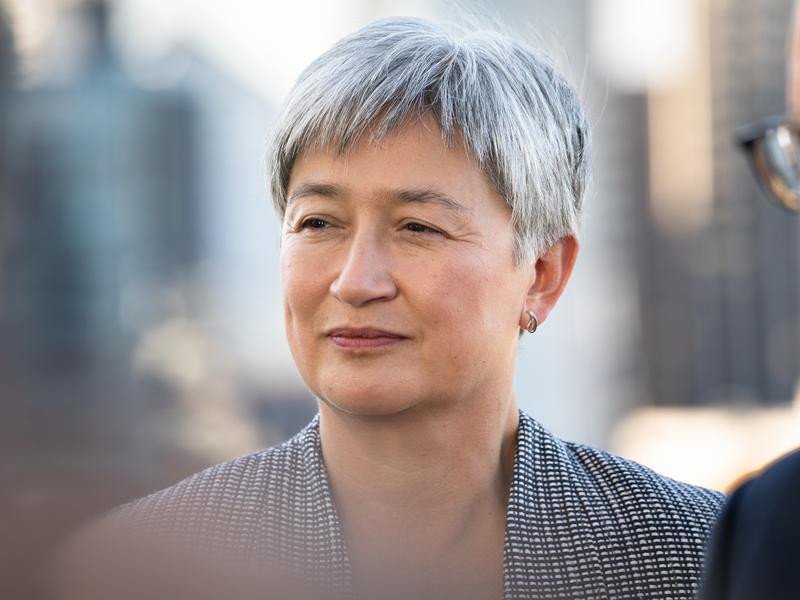Former Pentagon official Ely Ratner says AUKUS ‘too big to fail’ but review will raise tough questions for Aus
Former senior Pentagon official Ely Ratner believes the pact will go ahead but the review raises tough questions.

The AUKUS nuclear-powered submarine pact is “too big to fail” given the heavy investment in its success and rising strategic risks in the Indo-Pacific, former senior Pentagon official Ely Ratner said.
Dr Ely Ratner, the assistant secretary of defence for Indo-Pacific security affairs in the Biden administration, said the Pentagon’s current snap review of AUKUS should not cause “major concern” in Canberra because “the strategic logic and the political logic” for the pact “still hold”.
But he predicted that the 30-day review could “look to Australia to do more, to go faster, to spend more on its own defence” and raise tough questions about “the degree to which Australia is going to be willing to participate in and use those submarines in regional contingencies”.
Sign up to The Nightly's newsletters.
Get the first look at the digital newspaper, curated daily stories and breaking headlines delivered to your inbox.
By continuing you agree to our Terms and Privacy Policy.The pact, which is designed to boost the military capabilities of Australia, the US and UK in the Pacific at a time of rising strategic competition with China, would enable Australia and the UK to co-produce an attack submarine known as SSN-Aukus in Adelaide.
Initially it will see British and American nuclear submarines rotating through Perth from 2027 and the transfer of at least three US Navy Virginia-class attack submarines to Australia in the early 2030s.

Reports of a Pentagon review of the program, as well as the rapidly evolving conflict between Israel and Iran and the prospect of it tipping into a wider regional war, has stoked concerns in recent days about stretched US capabilities and its commitment to Indo-Pacific security.
Dr Ratner acknowledged that the surge of US military resources, including from the Indo-Pacific, towards the Middle East was “certainly concerning” but argued “the overall direction and thrust of the leadership in the Pentagon is to be focussed on the Indo-Pacific region”.
The Pentagon’s ongoing national defence strategy review, which is separate to the AUKUS stock take, reportedly put a laser focus on the China despite recent “mixed signals” over the escalating Middle East crisis, he said.
Dr Ratner who, as President Biden’s top Pentagon official for Asia, was at the heart of the high-level talks steering the development of the trilateral AUKUS pact from its conception in 2021, insisted the program still enjoyed “very strong bipartisan support” in Washington and had the backing of the top echelons of the US military.

Foreign Minister Penny Wong on Friday confirmed she had stressed the importance of the AUKUS partnership to maintaining strategic balance in the region, protecting peace and preventing conflict in an overnight phone call with US Secretary of State Marco Rubio.
“He’s on the record as understanding the importance of AUKUS, but obviously we’ll work through the review with the United States,” she said in Adelaide.
In a hearing of the Senate Armed Services Committee on Wednesday, US Defence Secretary Pete Hegseth called the review a “prudent” effort to ensure AUKUS fit President Trump’s priorities and to guarantee the capabilities of the defence and shipbuilding industrial base.
He indicated the arrangement was a “possible avenue” for increasing the United States’ nuclear deterrence in the Indo-Pacific and identifying better ways to work together to support that base and to co-produce munitions.
Despite alarm in some Canberra quarters over the scope of the assessment, Dr Ratner said he anticipated it would seek to enhance and improve the project “rather than an immediate decision to just kill the program”.
While it was possible the US could decide not to transfer its submarines as planned in the early 2030s, “all indications are that this can succeed” if political leaders remained focused and technical experts coordinated, he said.
Major investments and reforms to the submarine industrial base had already been undertaken although the fruits of those changes would take time to emerge.
“There is a degree of patience and we need to have confidence that we can do this, and frankly, that the stakes are so high that this is really a too big to fail effort. I think with that kind of an attitude, we’re just going to have to make it work,” he said.
Dr Ratner is now Principal at The Marathon Initiative, a bipartisan think tank focused on great power competition and co-founded by Elbridge Colby, the senior Pentagon official leading the review.
He downplayed concerns over the key role of Mr Colby, who has in the past expressed both scepticism and support for AUKUS.
“I consider Bridge a leading strategic thinker, and so I’m confident he’ll give this thing a hard look, and he’ll do it through the lens of his strategic perspective and through the lens of US national interest,” he said.
“But he’s long been a friend of Australia. He believes in the alliance, and I’m confident the review will get a fair shake.”
However, Dr Ratner cautioned that Australia should expect difficult questions over its defence investment and the nature and role of its missions in the alliance if it obtained some of the US’ most valuable military assets.
The Trump administration has ramped up pressure on Australia to hike its military spending to 3.5 per cent of GDP from the current 2.33 per cent by 2033 projection.
If 3.5 per cent was not politically viable, Canberra could consider a broader investment in national security priorities through homeland defence, infrastructure protection and cyber security, suggested Dr Ratner.
Australia’s leaders must also prepare for “in-depth” discussions on expectations of “collective” responses and the country’s role in regional contingencies, even if they were unable to make “hard and fast promises.”
The US retained a significant advantage over China in the undersea domain and nuclear-powered submarines, like those due to be transferred to Australia, were vital to deterrence, he said.
“If you’re taking arguably the prized capability in a China contingency, of course, you want to have that conversation.”
This did not imply “automaticity” of how Australia would respond to future scenarios, argued Dr Ratner, pointing to Washington’s own long-standing policy of strategic ambiguity over potential conflict in the Taiwan Strait.
But exercises and planning for possible command and control roles and core military functions if acting together could not be left to the last minute, he said.
In an article in Foreign Affairs last month, Dr Ratner made the case for a more formalised “Pacific Defence Pact”, initially between Australia, Japan, the Philippines and the US, to tackle the challenge of Chinese military modernisation and boost deterrence.
Much of the current regional security cooperation was too ad hoc and “would not translate into actual war fighting capability at the level that’s required,” he said.
Debate over whether more defence cooperation would raise tensions with China must also address the alternative scenario of decreasing deterrence among the region’s democracies, he argued.
“If that results in a China-led, China-dominated Indo-Pacific, that’s going to be catastrophic for Australia across all measures, economic and security.”

